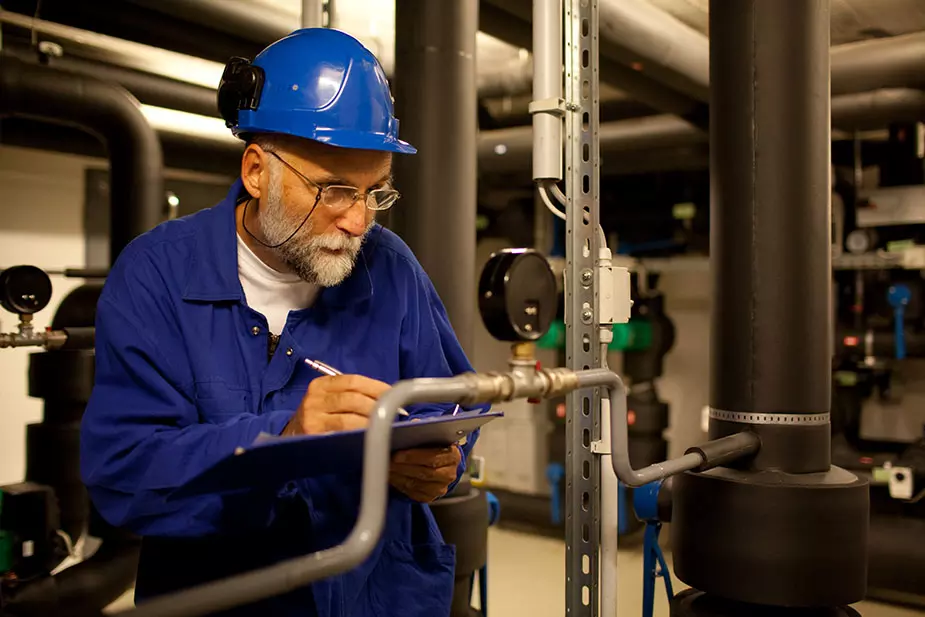Every industrial company unit has one or more functions that are indispensable for efficient operation, although they are not part of company’s main activities. By operating production and production support systems Veolia helps its clients utilise and control their resources in the best possible way thus allowing them to increase the efficiency of their production processes. The group strives to develop unique solutions which meet the needs industrial plants may have in the field of energy economics and thereby allow Veolia to build long-term relationships with its customers with a focus on their aims.

Heat supply
Pursuant to the agreements usually concluded for long terms, Veolia selects the appropriate primary sources of energy and ensures that they are used in the most cost efficient manner; it operates and maintains with maximum efficiency all heating and cooling systems taken over for management; it employs and manages its own staff required to supervise facilities; and it also ensures that the systems operated by it remain in an almost new condition by providing repair services which are in most cases part of the warranty provided by Veolia. In addition to all the above, it performs the measurements, tests and settings required by the applicable regulations with particular view to environment related regulations.
Cogeneration
Cogeneration means the simultaneous, combined generation of cooling, heat and power that provides a flexible way to meet customer demand. Cogeneration or trigeneration helps managed facilities achieve their maximum economic efficiency by using gas engines, gas turbines or absorption refrigerators. As a result of heat and power being cogenerated the process is operated with high efficiency and at low costs, although scaling properly adjusted to system requirements of great importance. Veolia applies the cogeneration solutions in three power plants and it operates 36 gas engines nationwide.
VPP (Virtual Power Plant)
The energetics branch of the Hungarian Veolia has its own virtual power plant that the company started to develop in 2008. Through central control the Telecommunications Control System (TIR) is capable of regulating and supervising the power generation equipment connected to it. By linking and coordinating the operation of gas engines, TIR creates a virtual power plant which may be controlled easily and in a coordinated manner, and thus this virtual power plant can provide system level services and balancing energy, thereby expanding the business opportunities of the equipment. Veolia’s virtual power plant regularly participates at the tenders published by MAVIR for tertiary and secondary controlling capacities, thereby generating significant additional income. Five gas turbines have been connected to the system, thus a 90 MW production unit is available to Veolia. Veolia’s long term objectives include the integration of 120 MW controlling capacity into the system on the level of the portfolio, thus in case of tenders published for 100 MW blocks the company would not depend on the potentials of the smaller competitors.
Keeping track of energy consumption online
Veolia customers using energy economy related services have the possibility to keep track of their power consumption online. As the first step of the process, the metering points relevant as far as energy management is concerned, are located and appointed (building section, type of services etc.), this is where the professional staff installs data recording and forwarding equipment that regularly record and forward consumption data to a central server.
On the one hand such data are analysed by the experts of Veolia, on the other hand our partners are entitled to access and view their own consumption data at any time through the online platform by using a personal identification code. With the help of this new service, projected and actual energy consumption data become comparable, and the different consumption characteristics, indicators and temperature values can also be easily defined. Thereby, facilities can control their energetics performance more closely and more efficiently which is one of the fundamental requirements of system optimization, energy efficiency development, and at the end of the day that of cost reduction. As an additional benefit partners become more energy conscious and network losses are also reduced.
Facility management
Facility management services mainly constitute the subject matter of agreements relating to office buildings, business centres and hotels. The content of these agreements are always tailored to the needs of the contracting partner. Agreements may even cover certain basic activities, like the maintenance and management of building engineering systems (heating and AC systems) and buildings, as well as conservation, while services may also include building management, security services, the supervision of the telephone system, reception services, cleaning services, gardening services, internal-external transportation. The idea and the biggest advantage of the whole scheme is that the client enters into a contractual relationship with only one company for the purposes of managing activities defined and considered by it to be secondary.


